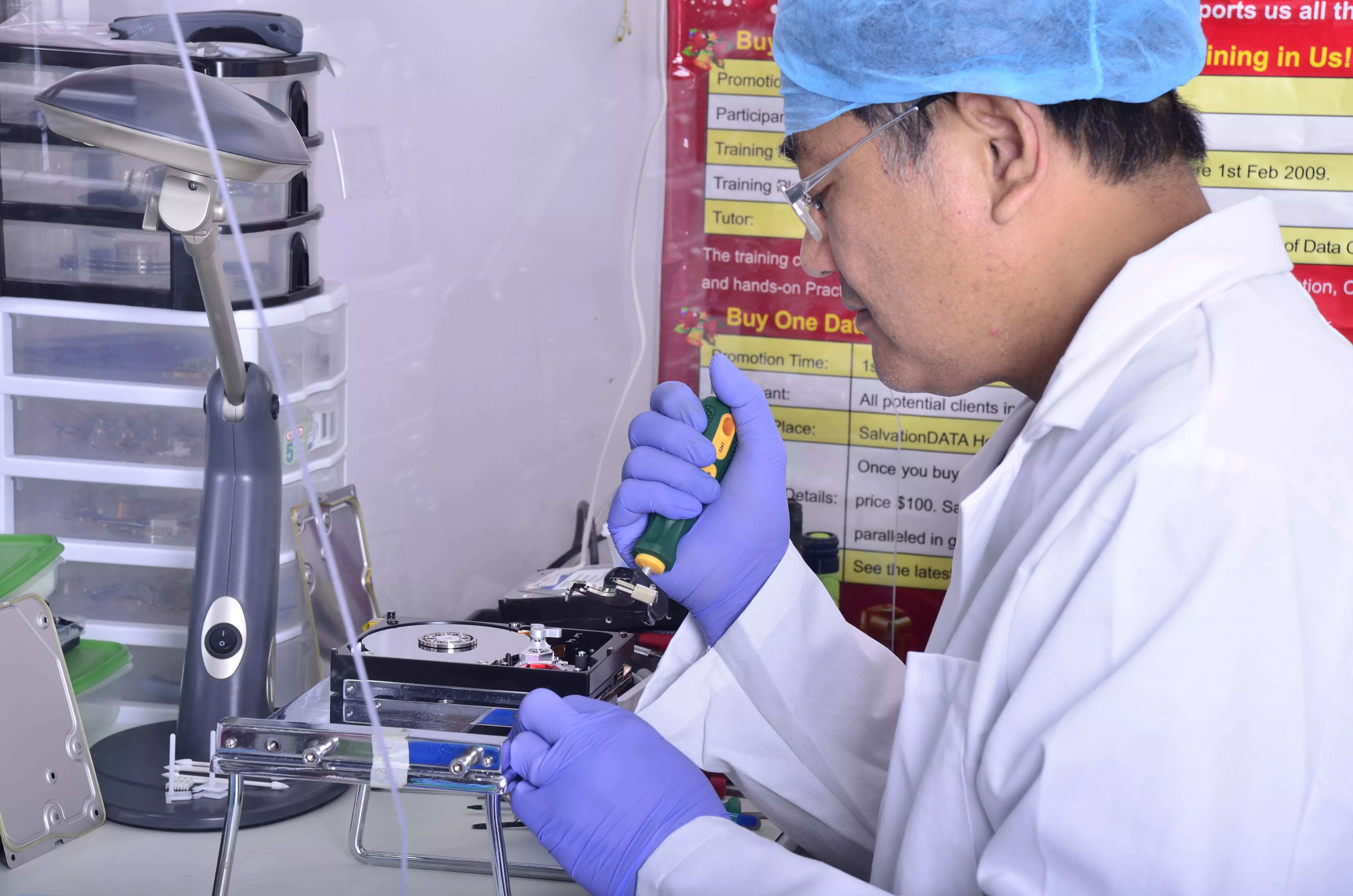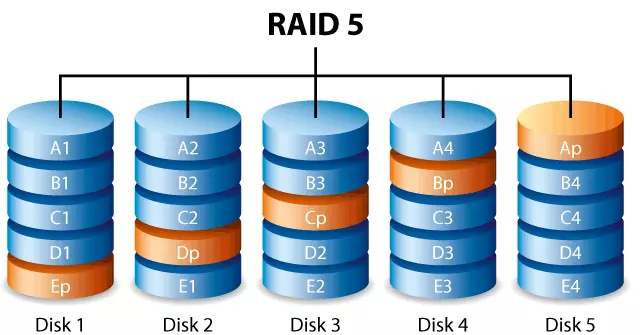

PC Warehouse offers Emergency Redundant Array of Independent Disks (RAID) Data Recovery service. Our largest successful RAID recovery included 14 SCSI hard drives from a RAID-6 system. Here are the different types of RAID configurations:
• RAID 0 - Data is striped across the drives without data backup (Designed for speed)
• RAID 1 - Mirroring - All Drives contain the same information.
• RAID 2 - Bit Level Striping - Disk motors are synchronized. Not commonly used anymore.
• RAID 3 - Bit Level Striping with Dedicated Parity Drive.
• RAID 4 - Bit Level Striping with 2 Dedicated Parity Drive.
• RAID 5 - Striping with parity. Parity information.
• RAID 6 - Block level striping with double distributed parity
• RAID 7 - Based on RAID 3 and RAID 4 with added caching.
• RAID 10 - RAID 1 set of two RAID 0 sets.
• RAID 0+1 - RAID 0 set of two RAID 1 sets.
There is a specific drive order for each RAID system. If you know which RAID configuration along with the drive order, please provide us with this information to speed up the process. If you don't have this information, we can figure out the RAID configuration and drive order. We recommend labeling the drives as they are removed from the system. The RAID controller is not required to do the recovery, we would need all the drives in the RAID set (including the working drives).

The hard drive is physically in good condition. There are no sounds of “clicking”, and is recognized by the operating system. The motor is spinning, and all the internal parts of the hard drive are functioning correctly. Nevertheless, some of the data is missing. Hard drives at the Drug Store state have an extremely high chance of recovery assuming the data wasn't overwritten my new data (such as installing a data recovery software directly on the same drive or continuing to use the drive after the data was lost.). This may be caused by:
• Virus / Malware Infections
• Human Errors (accidental deletions)
• Damaged MFT/FAT Tables
• Formatting Corruption
• Partition Errors
• Corrupted Software

There is some physical damage done to the hard drive. At this level, there is still no need to open and perform “surgery” to the drive, in order to retrieve data. Hard drives at the Clinic state have a generally good chance of recovery, when using our latest data recovery technology tools. Some symptoms of this level include:
• System Locks Up
• Freezing
• Will not Boot
• Hard Drive has Bad Sectors
• Firmware Errors
• Occasional Clicking
• Prolific SMART Errors
• Unreadable Data Sectors
If these symptoms are true for your hard drive, there is a chance that you may be losing data and not even know it. Stop using it immediately, and contact us to ensure that your data is not lost!!

There is bad physical damage. One or more of the mechanism within the hard drive doesn’t work. There may be clicking noises due to stuck/broken motors. Furthermore, the hard drive may have trouble spinning and might not spin at all. In order to recover data at this stage, a clean-room is required to dissemble the drive and swap the broken parts with parts from a compatible donor drive. A hospital level hard drive can be caused by:
• Impact from Hard Drive Falling
• Submerging or in contacts with Liquids or other chemicals
• Electrical Shortage (burning out the drive)
• Damaged Module
• Or simply from wear and tear of aging drives.
• Clicking
• Not Detected by Computer
• Doesn’t Spin
• No Power
• Not Initializing
PC Warehouse in Freehold can recover hard drives in ALL formats including Windows, Mac, and Linux. We also recover data in almost every interface including: SATA, IDE, SCSI, ETHERNET, USB. This includes external hard drives, internal hard drives, Flash Drives, Solid State and most MP3 players and smart phones.